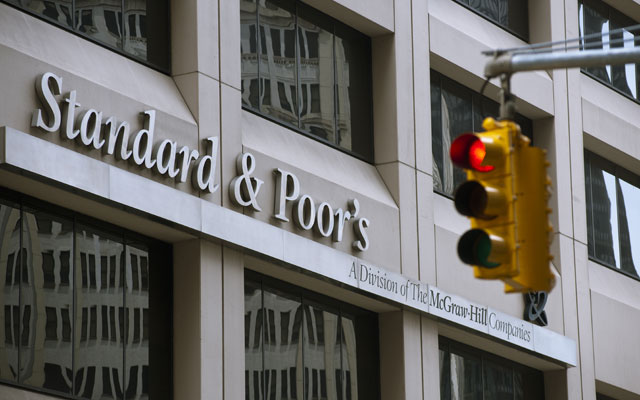Photo credit: RICHARD B. LEVINE/Newscom
The Department of Justice’s (DOJ) civil suit against credit rating agency Standard Poor’s (SP) shows that laws that existed well before the financial crash of 2008 were more than sufficient to deal with its potential causes.
While the specific charges in this suit will need to be litigated before their validity can be judged, it is clear that in certain instances, bonds containing poor quality mortgages were rated as though they contained better quality mortgages.
According to the suit, between 2004 and 2007, SP issued questionable ratings to certain issues of mortgage-backed securities. The DOJ cites internal SP e-mails that back up its contention that SP was aware that its ratings failed to account for the true risk of those securities.
While it is clear that there were serious problems with credit rating agencies, it is equally clear that no additional laws or regulations were needed. The DOJ is basing its suit on a 1989 law designed to protect taxpayers from having to pay for fraud against federally insured depository institutions. The DOJ charges that SP manipulated its ratings to induce certain banks and credit unions (which subsequently failed) to invest in these securities. The losses on the bonds rated by SP increased the losses to the Federal Deposit Insurance Corporation and the credit union depository insurance fund.
Some press accounts strongly suggest that the suit resulted from failed negotiations between the DOJ and SP. As with similar suits against other financial entities, the DOJ’s goal appears to be a negotiated settlement.
The activities of credit rating agencies such as SP, Moody’s, and Fitch’s before the 2008 financial crisis raise questions about their business model. While bond issues must be rated before they can be purchased and held by certain types of investors, the cost of the rating is paid by the issuer. For investors, the issuer has a greater financial interest in using the rating for marketing purposes than for any other purpose. In the wake of the credit collapse, some credit rating agencies have been accused of increasing revenue by bowing to the wishes of issuers that wanted the highest possible rating on their bonds.
Since the financial crisis, both the European Union and Australia have attempted to micro-manage credit rating agencies for their own political purposes. The EU has attempted to require local rating agencies that it can influence to rate any bonds issued in the EU. Australia has imposed direct government regulation of credit reporting agencies, but in neither case do investors seem to have benefited.
The SP suit should not be seen as justification for government micro-management of the credit rating agencies or their replacement by some government agency. It shows yet again that existing laws properly enforced could have dealt with the 2008 financial crisis.
Source material can be found at this site.










